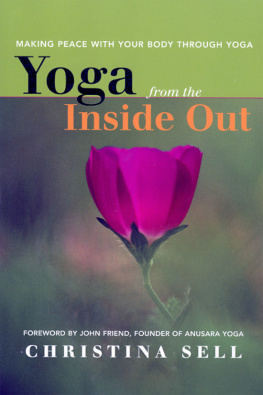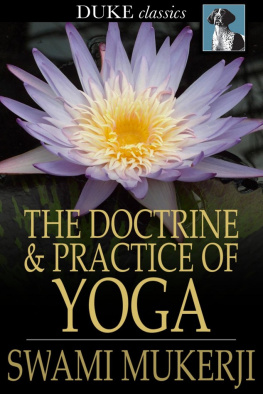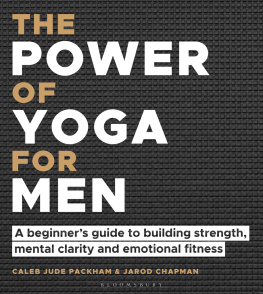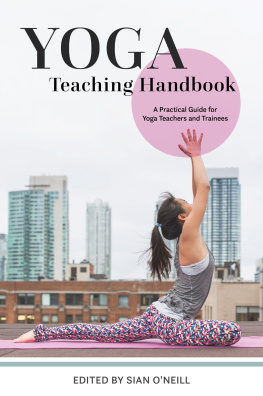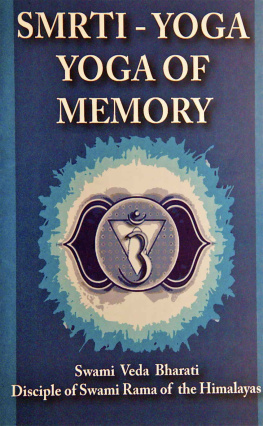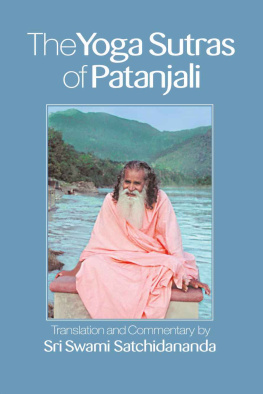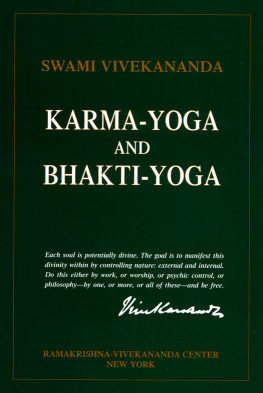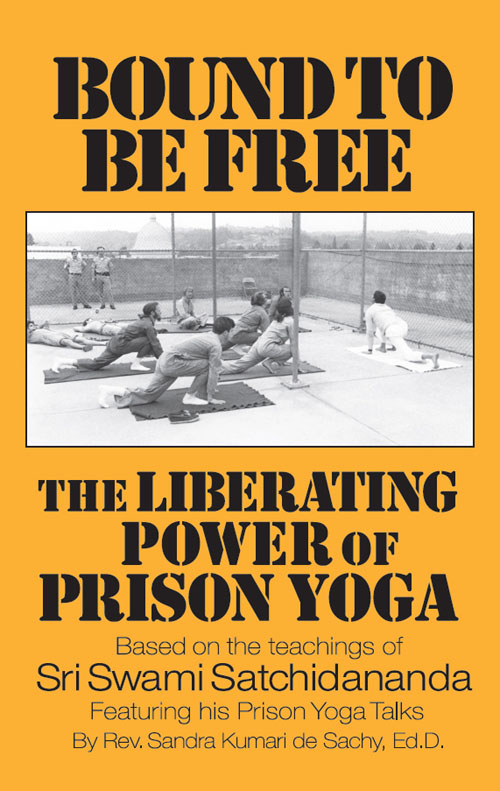Kudos to Maitreyi Villaman. She conceived the idea for the book and researched Swami Satchidanandas service in prisons; her passion and abundant creative energy triggered the release of my own creative impulse; to Swami Murugananda, manager of the Satchidananda Ashram-Yogaville library and creator of the SASTRI Program, an archive of Sri Swami Satchidanandas talks, Integral Yoga Magazine articles and other Integral Yoga writings and publications; to Dr. Prem Anjali, project manager, for her tireless support and commitment to the dissemination of the Integral Yoga teachings; to Peter Petronio for creating a book cover that compellingly illustrates the power of Prison Yoga; to Anand Shiva Herve for the graphic design and layout of the interior of the book; to Kalyani Neuman and Swami Hamsananda for their dedication and excellent editing skills; to Kristofer Marsh and Abhaya Thiele for proofing; to Swami Priyaananda, manager of the Satchidananda Archives; to my husband, Snehan, for sharing his formidable critical skills; to all those who contributed financially and creatively to this project; and special thanks to Satish and Veena Daryanani, the Harry Wadhwani family, Purusha Carves and Integral Yoga Magazine donors for underwriting this project.
Freedom XIV
An orator said, Speak to us of Freedom.
And he answered:
At the city gate and by your fireside I have seen you prostrate yourself and worship your own freedom,
even as slaves humble themselves before a tyrant and praise him though he slays them.
Ay, in the grove of the temple and in the shadow of the citadel I have seen the freest among you wear their freedom as a yoke and a handcuff.
And my heart bled within me; for you can only be free when even the desire of seeking freedom becomes a harness to you, and when you cease to speak of freedom as a goal and a fulfillment.
You shall be free indeed when your days are not without a care nor your nights without a want and a grief, but rather when these things girdle your life and yet you rise above them naked and unbound.
And how shall you rise beyond your days and nights unless you break the chains which you at the dawn of your understanding have fastened around your noon hour?
In truth that which you call freedom is the strongest of these chains, though its links glitter in the sun and dazzle the eyes.
And what is it but fragments of your own self you would discard that you may become free?
If it is an unjust law you would abolish, that law was written with your own hand upon your own forehead.
You cannot erase it by burning your law books nor by washing the foreheads of your judges, though you pour the sea upon them.
And if it is a despot you would dethrone, see first that his throne erected within you is destroyed.
For how can a tyrant rule the free and the proud, but for a tyranny in their own freedom and a shame in their won pride?
And if it is a care you would cast off, that care has been chosen by you rather than imposed upon you.
And if it is a fear you would dispel, the seat of that fear is in your heart and not in the hand of the feared.
Verily all things move within your being in constant half embrace, the desired and the dreaded, the repugnant and the cherished, the pursued and that which you would escape.
These things move within you as lights and shadows in pairs that cling.
And when the shadow fades and is no more, the light that lingers becomes a shadow to another light.
And thus your freedom when it loses its fetters becomes itself the fetter of a greater freedom. Khalil Gibran
Contents
Introduction
We citizens of the United States think of our country as the land of the free. Were very proud of our democratic heritage and our constitutional rights. When we feel that our freedom is compromised, we can and do speak out or take action. But I wonder how many of us take the time to think deeply about a privilege that we, often, take for granted. How many ask themselves: What is freedom, really? Is it an attribute embraced by a particular society? An inalienable right guaranteed by law? A political or social property that can be conferred or revoked? A moral principle?


